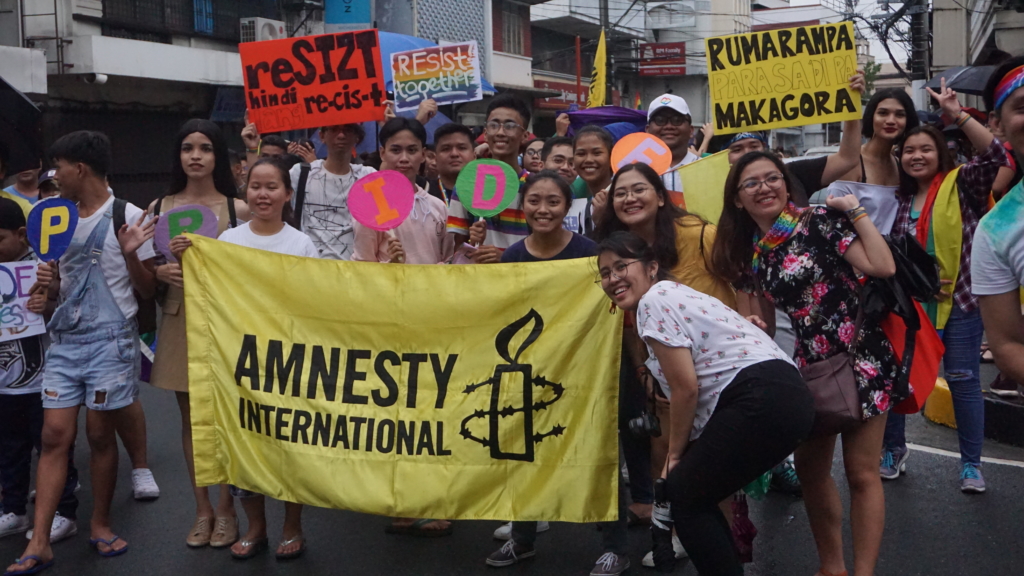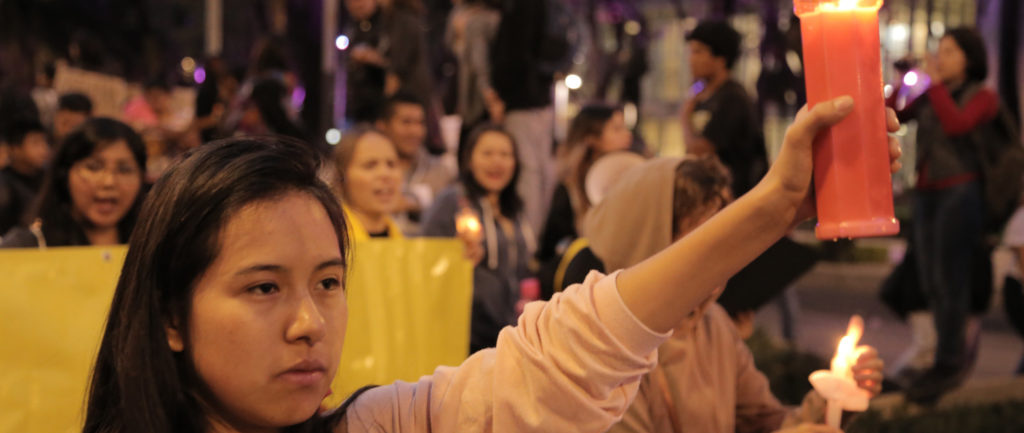In too many countries, being lesbian, gay, bisexual, transgender or intersex (LGBTI) means living with daily discrimination. Around the world, people are under attack for who they love, how they dress, and ultimately for who they are.
This discrimination could be based on your sexual orientation (who you’re attracted to); gender identity (how you define yourself, irrespective of your biological sex), gender expression (how you express your gender through your clothing, hair or make-up), or sex characteristics (for example, your genitals, chromosomes, reproductive organs, or hormone levels.)
From name-calling and bullying, to being denied a job or appropriate healthcare, the range of unequal treatment faced is extensive and damaging. It can also be life-threatening.
In all too many cases, LGBTI people are harassed in the streets, beaten up and sometimes killed, simply because of who they are. A spate of violence against trans people has claimed the lives of at least 369 individuals between October 2017 and September 2018. Many intersex people around the world are forced to undergo dangerous, invasive and completely unnecessary surgeries that can cause life-long physical and psychological side effects.
Sometimes, hostility directed at LGBTI people is stoked by the very governments that should be protecting them. A state-sponsored campaign in Chechnya led to the targeting of gay men, some of whom have been abducted, tortured and even killed. In Bangladesh, LGBTI activists have been hacked to death by machete-wielding armed groups, with the police and government taking little interest in delivering justice to the families of victims. In many parts of sub-Saharan Africa, LGBTI people continue to live in fear of being found out, and attacked or even murdered.
Same-sex sexual activity is a crime in 70 countries, and can get you a death sentence in nine countries, including Iran, Saudi Arabia, Sudan and Yemen. And even where these restrictive laws are not actually enforced, their very existence reinforces prejudice against LGBTI people, leaving them feeling like they have no protection against harassment, blackmail and violence.

Understanding SOGIESC
What is Pride?
Pride takes many forms – from carnivalesque marches, to film screenings and debates – and is a moment of celebration of people who are marginalized by strict definitions of what it means to be a man or a woman. Events are organized throughout the year, depending on where you are. In the Americas and Europe, the season usually kicks off in June, while February to March is Pride season in South Africa. Whatever the event, it’s a moment for LGBTI people to show that they are out and proud to be who they are. Pride festivals are banned in several countries around the world, including Russia, Saudi Arabia, Uganda and most recently Turkey. Pride celebrates the LGBTI movement in all its diversity, and amplifies the call to respect and protect LGBTI rights.
Why are LGBTI rights important?
Everyone should be able to feel proud of who they are and who they love. We all have the right to express ourselves freely. Article 19 of the Universal Declaration of Human Rights (which set out for the first time the rights we’re all entitled to) protects everyone’s right to express themselves freely.
Bringing an end to homophobia and transphobia will save lives. Anti-LGBTI harassment puts LGBTI identifying people at a heightened risk of physical and psychological harm. Everyone has the right to life, freedom and safety.
By embracing LGBTI people and understanding their identities, we can learn how to remove many of the limitations imposed by gender stereotypes. These stereotypes are damaging across society, defining and limiting how people are expected to live their lives. Removing them sets everyone free to achieve their full potential, without discriminatory social constraints.
LGBTI people, especially transgender and gender non-conforming people, are often at risk of economic and social exclusion. Fighting for laws that are more inclusive of people of regardless of their sexual orientation and gender identity will allow them access to their rights to health, education, housing and employment.
What is Amnesty doing to promote LGBTI rights?
We are committed to standing up to discrimination against LGBTI people around the world. We give recommendations to governments and other influential leaders on how to improve laws and protect people’s rights regardless of their sexual orientation or gender identity.
After a global Amnesty campaign, the highest court in Taiwan ruled that banning same-sex marriage was unconstitutional. In May 2019, Taiwan became the first country in Asia to recognize same-sex marriages.
In other areas, our work has strongly influenced new laws in Greece, Denmark and Norway that allow people to have their true gender legally recognized by the government.

Discrimination strikes at the very heart of being human.

